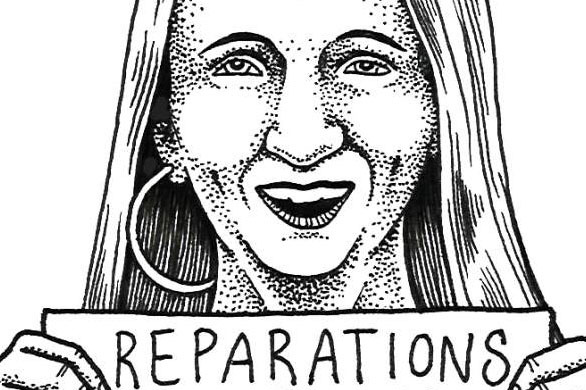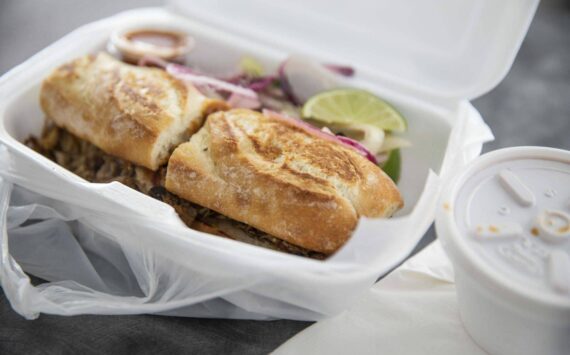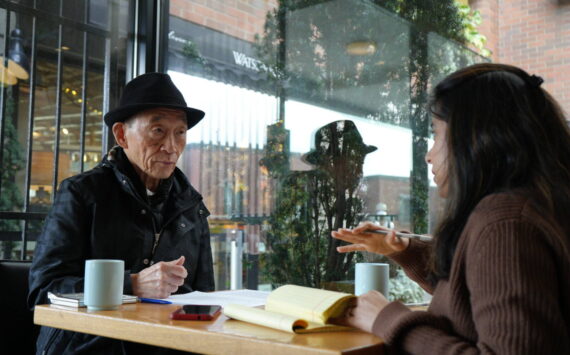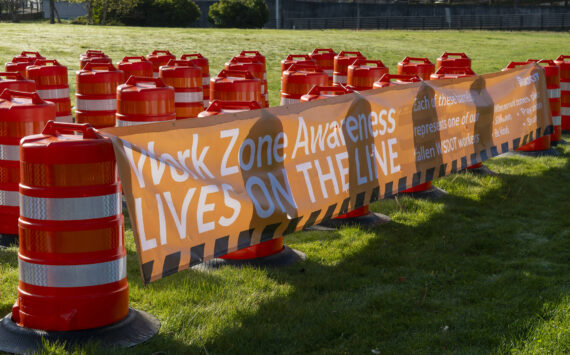Earlier this year, Bernie Sanders was asked whether he would support reparations for slavery in America.
Anne Hirsch. Illustration by Marie Hausauer
His answer, more or less, was no.
And yet the fact that a serious presidential candidate addressed reparations speaks to the idea’s recent resurgence. In Seattle, reparations have found a champion in Anne Hirsch, a certified midwife and member of the Uhuru Solidarity Movement, an organization of white people who work under the leadership of the African People’s Socialist Party.
We spoke with Hirsch about the growing momentum behind reparations.
SW: Why do you feel it is important for white Americans to engage in this issue? Hirsch: This is about colonialism. Colonialism is the oppression of one nation by another nation for the benefit of one people at the expense of another. And since the founding of the country, that has been the relationship between European white people and African people. So our relationship began when we enslaved them and brought them to a land where we had committed genocide against Native people and killed them and stole their land. There are so many lies in our education system and that’s not what we’re told, but when we realize that our lifestyle was built with this murderous, tortuous, parasitic relationship with African people, you know that the only way to make a difference in that is to pay reparations.
Are you saying that resistance to reparations from the white community comes from a misunderstanding of the history of slavery? No, I think it comes from opportunism. We like our white lifestyle and we like to ignore how it was created.
You raise an interesting point about the genocide of Native Americans. When you talk about reparations for black people, it raises the question of whether other wronged races could be left out. It’s not a question of being left out. The Uhuru Movement believes that Native people should get reparations too, and actually get their land returned to them. But African people have a right to struggle for justice for themselves. This is not at the exclusion of anyone, but black people have a right to struggle for their own freedom and liberation, and white people seem to have a big problem with that.
You mentioned earlier that one of your jobs is to “go into the white community.” Is the suggestion there that a white face will have a better chance at connecting with white people on this issue? I’m from the South. As you know, back in the ’60s white college students came down and wanted to participate [in the Civil Rights movement]. So they did as we as white people always do—they went in and they took over. They wanted to tell people how to run their movement. At that time the Student Nonviolent Coordinating Committee [a prominent black student organization] said to the white people, We don’t need you to organize our movement. What we need from you is to go back into the white community and win support for what we’re doing. And so that is why we do that, and not because an African person couldn’t do that.
It seems notable that, even though he said he opposed them, Bernie Sanders addressed reparations. Is there a reason this issue is coming up more in discussion? I believe it’s the resistance of African people to their oppression, which started in Ferguson, that is making things change right now. People can no longer ignore it. It’s the power of African people united for their liberation. That’s what’s making this come forward. But it is not in the interest of white power to address it. The only reason it is currently being addressed is the resistance of African people—the power of African people united is what is moving everything right now.
The Uhuru Solidarity Movement is hosting a “Reparations Tour” stop at Seattle University’s Wyckoff Auditorium Friday, March 18 at 7 p.m.
This interview has been edited for length.
Daniel Person is News Editor for Seattle Weekly. He can be reached at dperson@seattleweekly.com or 206-467-4381. Follow him on Twitter at @danoperson. Get more from your favorite writers by subscribing to our weekly newsletters.








